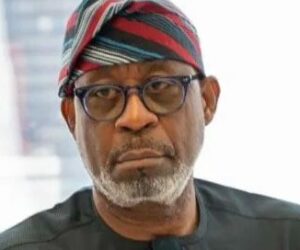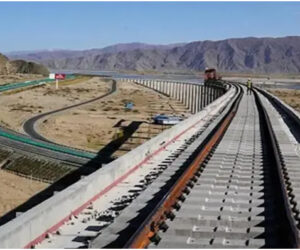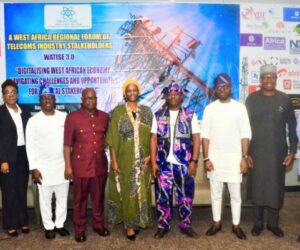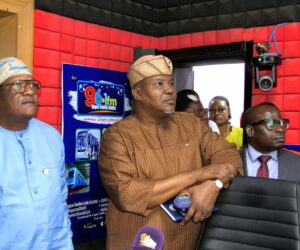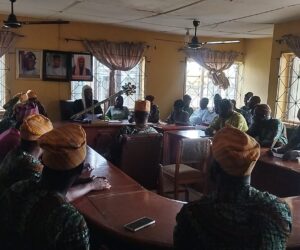1
…Unveils Plan To Power Healthcare Facilities With Reliable Electricity
The Federal Government has scrapped the 5% tax previously imposed on telecommunications services, including voice calls and data usage.
The National Orientation Agency made this known in a post via its official X (formerly Twitter) page on Thursday.
The post said the Executive Vice Chairman of the Nigerian Communications Commission, Dr. Aminu Maida, disclosed that President Bola Tinubu ordered the removal of the tax during discussions on the recently passed Finance Act.
The NCC boss noted that the move is expected to ease cost pressures for millions of mobile service users in the country.
Maida added that the president’s intervention was aimed at preventing additional financial strain on citizens while supporting the digital economy.
“The development is expected to bring relief to over 171 million active telecom users across the country, many of whom have faced a 50% tariff increase implemented earlier this year,” he added.
The tax, which applies to both voice calls and data subscriptions, was introduced under the administration of the late former President Muhammadu Buhari.
The 5% excise duty, which was first announced in 2022, had faced widespread criticism from both telecom operators and consumer rights groups, who warned it would worsen the financial burden on Nigerians amid rising living costs.
The government’s justification then was part of its effort to boost revenue generation amid dwindling oil earnings.
The Ministry of Finance at the time argued that the levy was in line with global taxation practices.
Telecom operators, under the umbrella of the Association of Licensed Telecom Operators of Nigeria (ALTON), however, warned that the policy would be counterproductive.
ALTON noted that Nigeria already had one of the highest tax burdens on the telecommunications sector in sub-Saharan Africa.
FG Unveils Plan To Power Healthcare Facilities With Reliable Electricity
Meanwhile, in a move to bridge the critical gap between energy and healthcare, the Federal Government has inaugurated the First National Stakeholders’ Dialogue on Power in the Health Sector, declaring a new era of collaboration to ensure no hospital or health centre in Nigeria is left in the dark.
The Minister of Power, Chief Adebayo Adelabu, delivering the keynote address, stated that the dialogue marks a fundamental shift away from working in silos and towards an integrated approach to national development.
He emphasised that reliable electricity is not a luxury but a prerequisite for a functional health system, which in turn is essential for economic growth and productivity.
“Without reliable power, health systems cannot function effectively. Without a healthy population, productivity and economic growth cannot be achieved,” the minister said. “This partnership is how we turn policies into real impact for our people.”
The initiative is a direct implementation of President Bola Ahmed Tinubu’s Renewed Hope Agenda, which prioritises both infrastructure renewal and access to quality healthcare.
The minister outlined a comprehensive plan to leverage renewable energy and new policies to create a “reliable power backbone” for the health sector.
He pointed to the work of the Rural Electrification Agency (REA) as a proven model for success. During the COVID-19 pandemic, the REA deployed solar mini-grids to 100 healthcare facilities to ensure uninterrupted power. Furthermore, through its Energising Education Programme, teaching hospitals are already benefiting from large-scale solar systems, including a 12MW plant at the University of Maiduguri Teaching Hospital and a 7MW system at the University of Calabar Teaching Hospital.
“These interventions are already yielding tangible results: vaccine storage is now functional in remote communities, maternal and child health services are improving as midwives can conduct night deliveries with reliable light, and essential medicines can be stored in off-grid locations.
“These are not abstract achievements,” Adelabu stressed. “They represent real lives being saved, communities being empowered, and healthcare being brought closer to the people.”
The government plans to scale up these pilot projects nationwide using a mix of solar hybrid mini-grids, standalone systems, and grid expansion. A key focus will be on attracting private investment and blending public funding with donor support to make the projects sustainable and scalable.
The minister described the signing of the 2023 Electricity Act as a major move that opened up the sector and further galvanised development in the Nigeria Electricity Supply Industry (NESI).
“The signing of the Act allowed for the decentralisation, liberalisation and participation of the subnational government in the sector. The Act also mandated the Federal Government, through the Ministry of Power, to develop the Nigerian Integrated Electricity Policy and Strategic Implementation Plan (NIEP-SIP). In fulfilment of the statutory mandate, the Federal Ministry of Power developed the National Integrated Electricity Policy (NIEP)”.
He noted that the transformative frameworks set a clear roadmap for delivering a resilient, cost-effective, and sustainable power sector.
“The NIEP-SIP serves as a guiding blueprint for Nigeria’s energy development, addressing areas such as rural electrification, public-private partnerships for universal electricity access, power-source specific policies, bulk power purchase, and management of local distribution in rural areas, among other pertinent aspects as directed by the Federal Government”, adding that the NIEP aligns with Nigeria’s Energy Transition Plan, which he described as a bold roadmap to achieve net-zero by 2060, expand renewables and ensure universal energy access.
The minister thanked the Coordinating Minister of Health and Social Welfare, Prof. Muhammad Ali Pate, and the Minister of State, Dr. Iziaq Adekunle Salako, for their cooperation, calling it a model for inter-ministerial collaboration.
The event concluded with a call to action for all stakeholders to move from ideas to implementation, ensuring that every health facility in Nigeria, no matter how remote, has the electricity it needs to deliver life-saving services and power the nation’s future.


